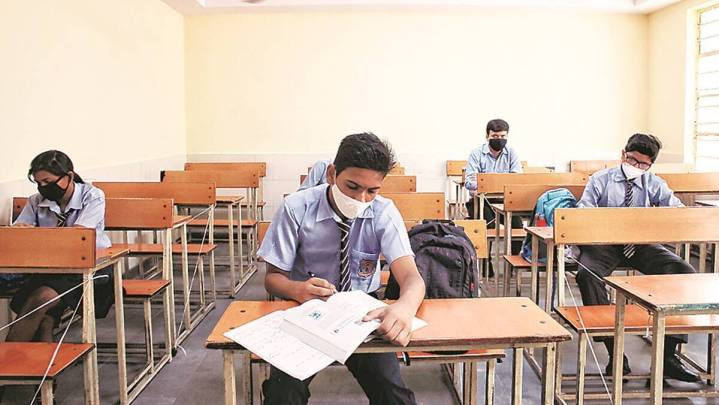Why Andhra Pradesh’s education policy deserves to be scaled up nationally | The Indian Express – Kancha Ilaiah Shepherd
Madhu Chandra Smith
Why Andhra Pradesh’s education policy deserves to be scaled up nationally | The Indian Express

CM Jagan Mohan Reddy has made sure that students are taught in the English medium at all levels, from anganwadi to university. That is a quantum jump in India’s educational language policy.
The Andhra government’s education policy has parallels with the British model of educational welfarism. (Representational)
Andhra Pradesh’s education policy appears to be birthing new hope among its people, especially those sections historically denied equal opportunity in the Indian education system. The hope comes from the repeated stress of Chief Minister Y S Jagan Mohan Reddy on investment in school, college and university education and his claim that he wishes to provide education as “property to every child in the state”. His policy has three major aspects:
One, the CM is saying, rather repeatedly, that quality and equal education in all respects is the best asset that the government could give to the younger generation.
Two, never before, including the period after Independence, have Indians got a one-language education with uniformity of learning opportunities. In this case, he has made sure that students are taught in the English medium, with one subject Telugu, at all levels from anganwadi (pre-school) to university. That is a quantum jump in India’s educational language policy.
Third, the government is creatively spending a substantial amount of money on the education sector. The data provided here gives a clear picture. The amounts given here were spent in two budget years after Jagan Mohan Reddy came to power in 2019. Under the Jagananna Amma Vodi scheme, it spent Rs 13,022 crore, which went into the accounts of poor mothers to spend on their children’s school education. It benefited 44,48,865 families. Under the Jagananna Vidya Deevena scheme, it spent Rs 5,573 crore, which went into mothers’ accounts of college-going youth. It benefited 18,80,934 families. Under Jagananna Vasathi Deevena, Rs 2,270 crore went into 15,56,956 women’s accounts to spend on various miscellaneous educational and family expenditures. Under Jagananna Gorumudda scheme, Rs 1,600 crore was allotted for the provision of quality midday meals in schools. Under yet another scheme, Jagananna Vidya Kanuka, it spent Rs 650 crore on books, bags, shoes and so on. The state government also initiated a programme to build good school infrastructure. In all, so far on, the government spent Rs 26,678 crore in two financial years on education.
This expenditure is over and above the teaching and non-teaching staff salaries. In a country of massive poverty, this is a game-changer.
The Indian education system has been caste and class biased. Indian democracy has not yet realised the importance of investing in quality school education. No state or the Centre has realised that the nation has to be united with one-language education. For this, a bold decision is needed to appoint English as the main national teaching language. Recently N R Narayana Murthy, the founder of Infosys, said English must be recognised as an Indian language and taught in all schools as a national priority.
The so-called bold and progressive chief ministers like Congress’s Siddaramaiah and CPM’s Pinarayi Vijayan shrank from introducing English-medium in government schools in their states. In Telangana, K Chandrashekar Rao promised KG to PG English medium education and went back on it. Mamata Banerjee too has not done anything innovative on that account. Even in Maharashtra and Gujarat, where the rich educate their children in English medium, Maratha and Gujarati sentiments keeps poor Dalits, Shudras and Adivasis in regional language education. This is where Jagan Mohan Reddy’s bold step must be appreciated.
The Andhra government’s education policy has parallels with the British model of educational welfarism. However, this policy is not backed by the central government. So long as Delhi does not push for a switch to teaching in English, quality education for future generations will not be possible. The AP government is showing a way.
Kancha Ilaiah Shepherd is a political theorist, social activist. He is the author of From a Shepherd Boy to an Intellectual–My Memoirs
